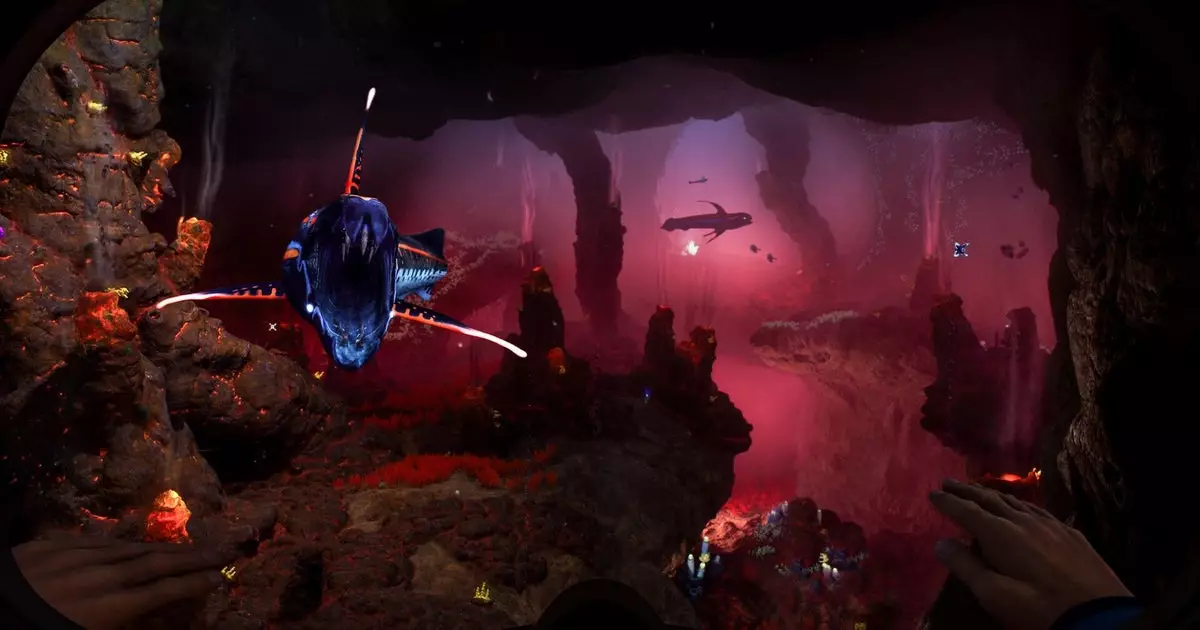The postponement of Subnautica 2 into 2026 highlights more than just production challenges; it exposes the fragile dynamics between publishers and developers in the high-stakes realm of AAA and premium indie titles. While delays are not uncommon in the gaming industry, this particular case raises uncomfortable questions about corporate motives, financial incentives, and the true cost of pushing ambitious projects forward. The delay, officially justified as “giving ourselves a little extra time,” masks underlying tensions that could have catastrophic implications for employee morale, creative freedom, and investor confidence.
This situation demonstrates that game development is as much a battle of power and influence as it is a technical endeavor. Behind the scenes, the decision to delay the game was not merely a matter of polish or quality assurance but appears driven by strategic financial considerations. It underscores how publishers, in their obsession with hitting market windows, often prioritize immediate profit over long-term brand integrity. Such a stance risks alienating loyal fans who are eager to experience the game on its terms, and instead, it invites speculation about whether the delay masks deeper issues like financial maneuvers or contractual disputes.
The Fallout of Leadership Shake-Ups and Corporate Intrigue
The recent upheaval at Unknown Worlds, which saw three senior executives ousted and replaced with a new CEO, is emblematic of a broader pattern where corporate interests overshadow the studio’s creative vision. Charlie Cleveland, the studio’s co-founder and a key figure in its identity, expressed shock upon being sidelined, emphasizing how sudden and disruptive these changes have been. Cleveland’s candid remarks about the game being “ready for early access” underscore a disconnect between the development team’s perspective and the publisher’s corporate strategy.
The leadership transition hints at internal conflicts—perhaps over the game’s readiness, release strategy, or financial targets. Power struggles like these are seldom purely about creative control; they are often fueled by financial performance expectations, investor pressure, and contractual incentives. The fact that the delay might be employed strategically to influence a significant bonus payout — potentially costing the studio a $250 million bonus — signals a disturbing willingness to sacrifice creative integrity and employee welfare for monetary gain.
When the new leadership hints that the delay is simply “to give ourselves a little extra time,” it appears merely a euphemism for broader strategic considerations. Such vague corporate messaging underscores a lack of transparency and trust, fueling frustration among staff and fans alike. This narrative becomes even more troubling when contrasted with the strong financial performance of Krafton, the publisher, which celebrated record profits—raising questions about whether financial leverage is being wielded at the expense of artistic vision.
Financial Power Play and Industry Implications
Krafton’s financial success lends a stark perspective to the narrative. With record quarterly earnings in 2025 and a hefty CEO bonus, the company’s capacity and inclination to manipulate project timelines for strategic advantages seem amplified. The mention that the delay could be linked to the missed bonus payout casts a shadow on corporate ethics. It suggests that gameplay delays may serve as strategic levers to influence financial terms rather than purely gameplay quality.
Such practices threaten to erode trust in the industry, especially among developers who may feel exploited or coerced into meeting arbitrary deadlines. The ongoing power struggle reveals how financial interests are often prioritized over the passion and craftsmanship that drive game development. This creates a toxic environment where developers, particularly those like Cleveland who helped establish the studio’s identity, feel sidelined and undervalued, risking long-term damage to their creative autonomy and mental health.
Furthermore, the strategic delay of Subnautica 2 might set a precedent for other projects, encouraging publishers to manipulate schedules to maximize monetary gains, thereby fostering an environment of insecurity and unpredictability. As fans eagerly await the next big entry, their trust issues deepen—an industry already plagued by crunch culture, missed promises, and opaque corporate motives.
The Larger Industry Reflection and Future Outlook
The Subnautica 2 delay is a microcosm of the larger conversation happening across the gaming industry. It challenges us to consider whether the current business models serve the players and creators or simply corporate interests cloaked in glossy marketing promises. Transparency is in short supply, and when leadership changes occur suddenly and without clear rationale, it deepens skepticism and fan disappointment.
This controversy compels industry watchers and stakeholders to rethink the underlying motivations behind project timelines and financial incentives. Is the pursuit of profit coming at the expense of the creative spirit that once defined gaming’s innovative edge? For players, especially those invested in anticipation, the unfolding drama serves as a stark reminder that even beloved franchises risk being compromised at the altar of corporate agendas.
The future of Subnautica 2 and similar projects hinges on whether developers and fans can reclaim agency from profits-hungry publishers. Meanwhile, the industry must confront its tendency to prioritize shareholder returns over ethical practices and the well-being of its creative talent, lest it continue down a path fraught with disillusionment and fractured trust.

